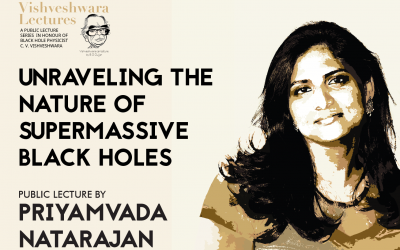Black Holes are the most enigmatic and elusive objects in the Universe. In this talk, I will show why supermassive black holes have such a strong hold on our imagination -- the history of the idea; their leap from a mathematical solution to real observationally-detected objects; their peculiar properties and the pivotal role that we now know they play in structuring the Cosmos. Our knowledge of the formation, growth and impact of supermassive black holes has grown tremendously in the past decade. I will share how we know what we know, and close with the current open questions and future prospects for unraveling their nature.
ABOUT THE SPEAKER
Professor Priyamvada Natarajan is an astrophysicist at Yale. She also holds the Sophie and Tycho Brahe Professorship at the Niels Bohr Institute at the University of Copenhagen as well as an honorary professorship for life at the University of Delhi. She has made seminal contributions to our current understanding of the formation and growth of black holes and of the nature of dark matter. Born and brought up in India, she completed her PhD from the University of Cambridge, where she was the first woman in astrophysics to be elected a fellow of Trinity College. She is an elected fellow of the American Physical Society, Royal Astronomical Society and many other professional organizations. She has been the chair of the Division of Astrophysics of the American Physical Society and currently serves on the National Astronomy & Astrophysics Advisory Committee that advises NASA, NSF and DoE. She is also the author of the critically acclaimed book “Mapping the Heavens: The Radical Scientific Ideas that Reveal the Cosmos.”



